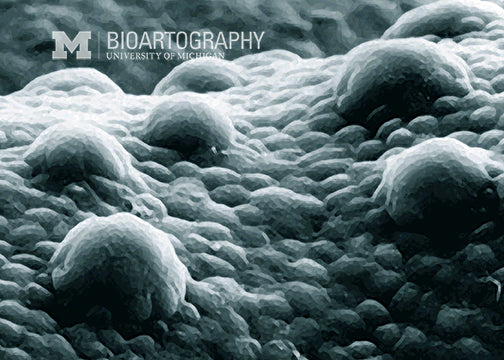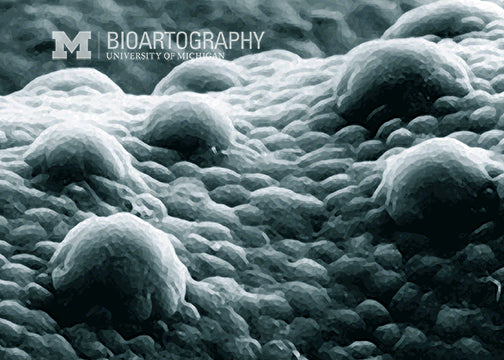

Charlotte Mistretta, Ph.D., Professor of Dentistry, University of Michigan School of Dentistry
The sense of taste is essential to identify the nutrients that our bodies require and to reject some chemicals that are noxious. Taste is mediated by taste buds that reside in structures called taste papillae on the tongue, but precisely how these structures develop in the embryo is still unclear. This is a scanning electron micrograph of the surface of the tongue of a rat embryo. The large mounded structures are early developing taste papillae (fungiform papillae to be precise) in a tongue organ culture system. The organ culture is useful because it allows us to observe papilla development in the dish, where molecules can be added or subtracted to understand how papilla formation is regulated.
